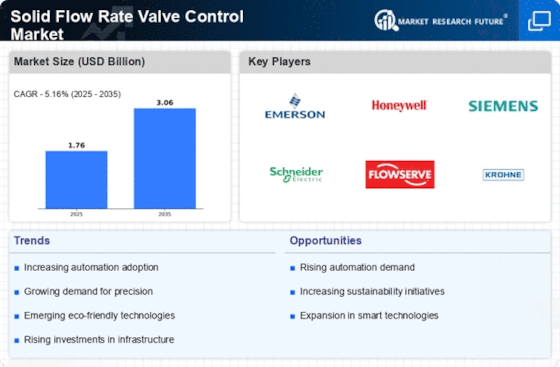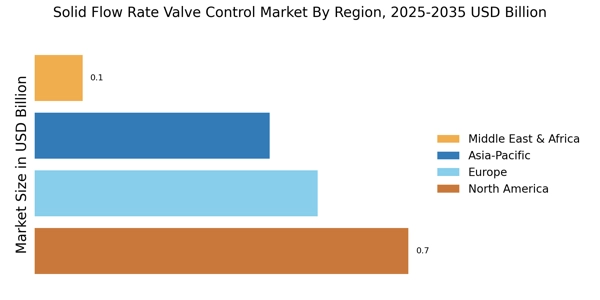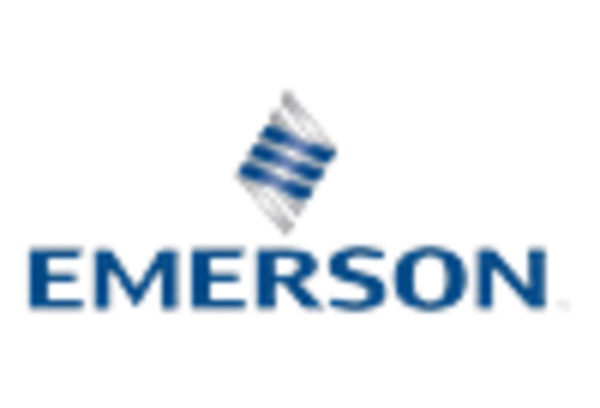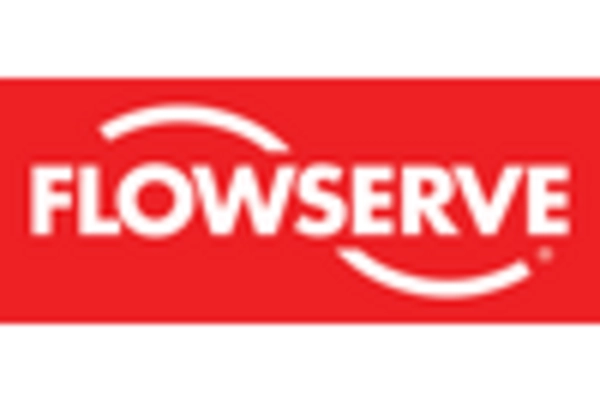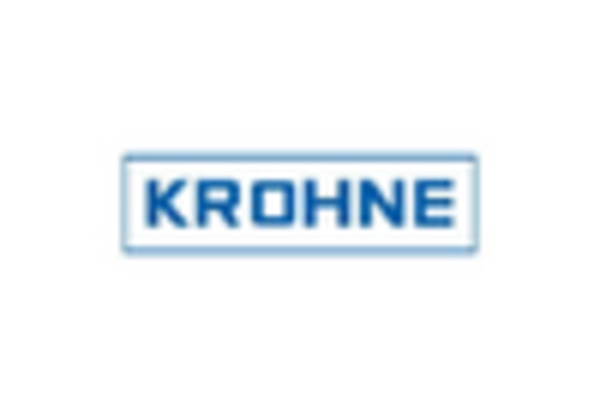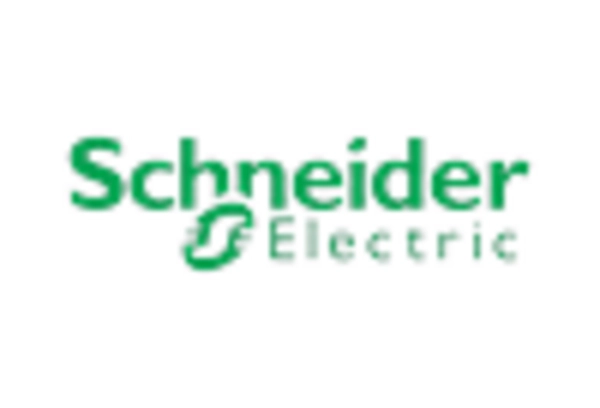Expansion of Process Industries
The expansion of process industries, such as chemicals, oil and gas, and water treatment, is a significant driver for the Solid Flow Rate Valve Control Market. As these industries grow, the need for reliable and efficient flow control systems becomes increasingly critical. The chemical processing sector alone is projected to reach a market size of over USD 5 trillion by 2026, indicating a robust demand for advanced valve control solutions. This expansion necessitates the implementation of sophisticated flow rate control systems to ensure safety, compliance, and operational efficiency. Consequently, the Solid Flow Rate Valve Control Market is poised to capitalize on this growth trajectory.
Increasing Demand for Automation
The Solid Flow Rate Valve Control Market is experiencing a notable surge in demand for automation across various sectors, including manufacturing, food processing, and pharmaceuticals. Automation enhances operational efficiency and reduces human error, which is crucial in processes requiring precise flow control. According to recent data, the automation market is projected to grow at a compound annual growth rate (CAGR) of approximately 9% over the next five years. This trend is likely to drive the adoption of advanced valve control systems, as industries seek to optimize their processes and improve productivity. As a result, the Solid Flow Rate Valve Control Market is positioned to benefit significantly from this shift towards automated solutions.
Rising Focus on Energy Efficiency
Energy efficiency has become a pivotal concern for industries worldwide, prompting a shift towards technologies that minimize energy consumption. The Solid Flow Rate Valve Control Market is likely to see increased demand for valves that offer enhanced energy-saving features. With energy costs rising, companies are investing in solutions that not only reduce operational expenses but also comply with stringent environmental regulations. Reports indicate that energy-efficient systems can reduce energy consumption by up to 30%, making them an attractive option for industries aiming to lower their carbon footprint. This growing emphasis on energy efficiency is expected to propel the Solid Flow Rate Valve Control Market forward.
Technological Innovations in Valve Design
Technological innovations in valve design are transforming the Solid Flow Rate Valve Control Market. The introduction of smart valves equipped with IoT capabilities allows for real-time monitoring and control, enhancing operational efficiency and reliability. These advancements enable industries to gather data on flow rates, pressure, and temperature, facilitating predictive maintenance and reducing downtime. As industries increasingly adopt smart technologies, the demand for innovative valve solutions is expected to rise. This trend suggests that the Solid Flow Rate Valve Control Market will continue to evolve, driven by the need for more intelligent and responsive flow control systems.
Regulatory Compliance and Safety Standards
Regulatory compliance and safety standards are becoming increasingly stringent across various industries, driving the need for reliable flow control solutions. The Solid Flow Rate Valve Control Market is likely to benefit from this trend, as companies seek to adhere to regulations that ensure safe and efficient operations. Industries such as pharmaceuticals and food processing are particularly affected, as they must comply with rigorous safety standards. The demand for valves that meet these compliance requirements is expected to grow, as companies prioritize safety and quality in their operations. This focus on regulatory compliance is anticipated to propel the Solid Flow Rate Valve Control Market forward.


